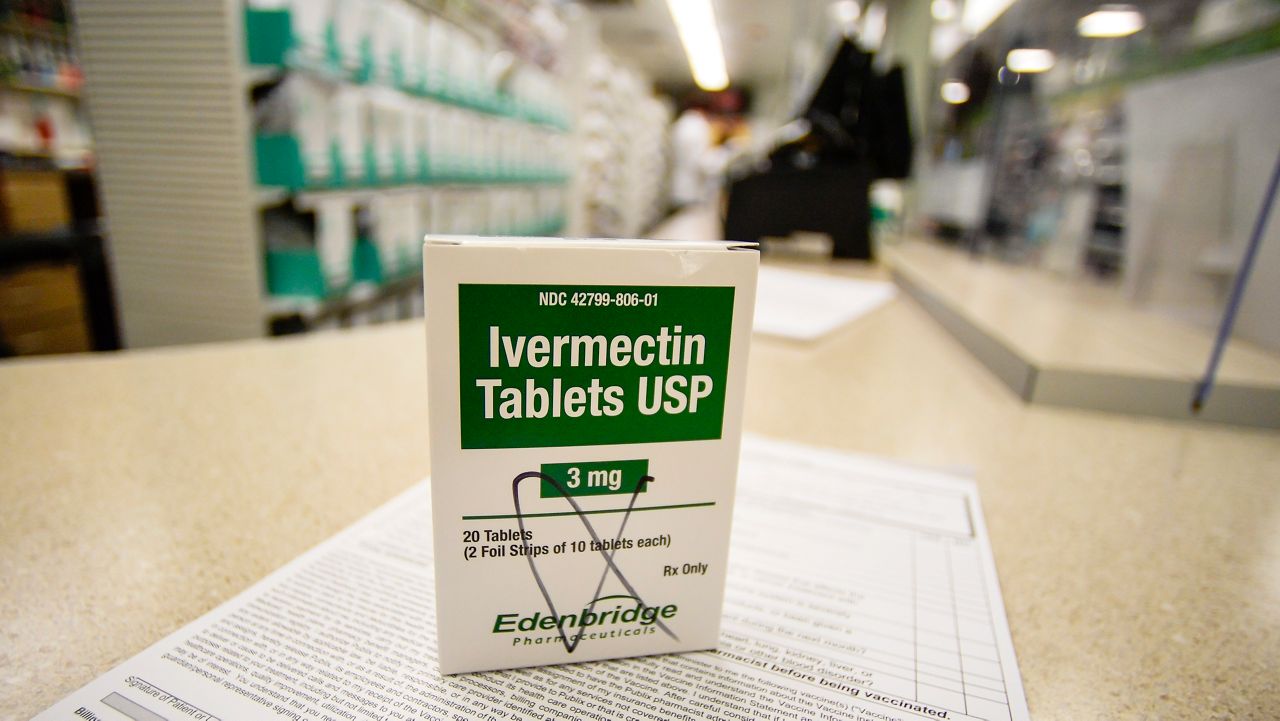A new study concerning the drug ivermectin found it was not effective in decreasing the chance of hospitalization for patients with COVID-19, nor did it prove to have an impact on after-hospital outcomes.
The study, published Wednesday in the New England Journal of Medicine, included data from 3,515 individuals in Brazil starting in mid-2020 in an attempt to determine the “efficacy of repurposed treatments for Covid-19 among adult outpatients at high risk for hospitalization.”
In order to be eligible for the study, patients must have presented to an outpatient facility with acute COVID-19 within a week after first experiencing symptoms and fit at least one high-risk criteria for the SARS-CoV-2 virus, including pre-existing conditions like lung disease, obesity, diabetes, hypertension and others.
Of the participants, 679 were selected to receive an ivermectin treatment, which consisted of a 400 μg dose per kilogram of body weight for three days; another 679 individuals were assigned a placebo treatment and a third group of 2,157 individuals were assigned “another intervention,” ranging from placebo treatments to hydroxychloroquine to fluvoxamine.
Researchers examined the patients for both primary and secondary outcomes after their treatment for COVID-19. A primary outcome was defined as either hospitalization or a visit to an emergency department, with the stay lasting at least six hours, due to COVID-19 within 28 days after trial randomization.
Secondary outcome measures included patients’ viral load at days three and seven post-treatment, as well as other results like hospitalization for any reason, time to clinical recovery, health-related quality of life and more.
Exactly 100 patients treated with ivermectin, or 14.7% of the group, were either hospitalized due to COVID-19 or had an extended emergency room visit because of the virus after the trial compared with 111, or 16.3%, of those who received a placebo therapy. Researchers additionally found “no significant differences between the ivermectin group and the placebo group with regard to viral clearance at day 7” after treatment.
“We did not find a significantly or clinically meaningful lower risk of medical admission to a hospital or prolonged emergency department observation [...] with ivermectin administered for 3 days at a dose of 400 μg per kilogram per day than with placebo,” the study authors wrote in part. “We found no important effects of treatment with ivermectin on the secondary outcomes.”
Much debate has circled about the highly-controversial treatment. The drug, typically used for parasites, was promoted by conservative commentators as a treatment despite a lack of conclusive evidence that it helps people with the virus.
Interest in the drug started rising toward the end of 2020 and the beginning of this 2021, when studies — some later withdrawn, in other countries — seemed to suggest ivermectin had some potential and it became a hot topic of conversation among conservatives on social media.
But researchers from Brazil noted “the overall number of events that occurred in our trial is larger than the number of all the combined events” from previous studies, adding that “results of this trial will, therefore, reduce the effect size of the meta-analyses that have indicated any benefits.”
Ivermectin is not authorized or approved by FDA to treat or prevent COVID-19, and most health experts and agencies recommend against prescribing the anti-parasite drug for this purpose.
The Associated Press contributed to this report.



